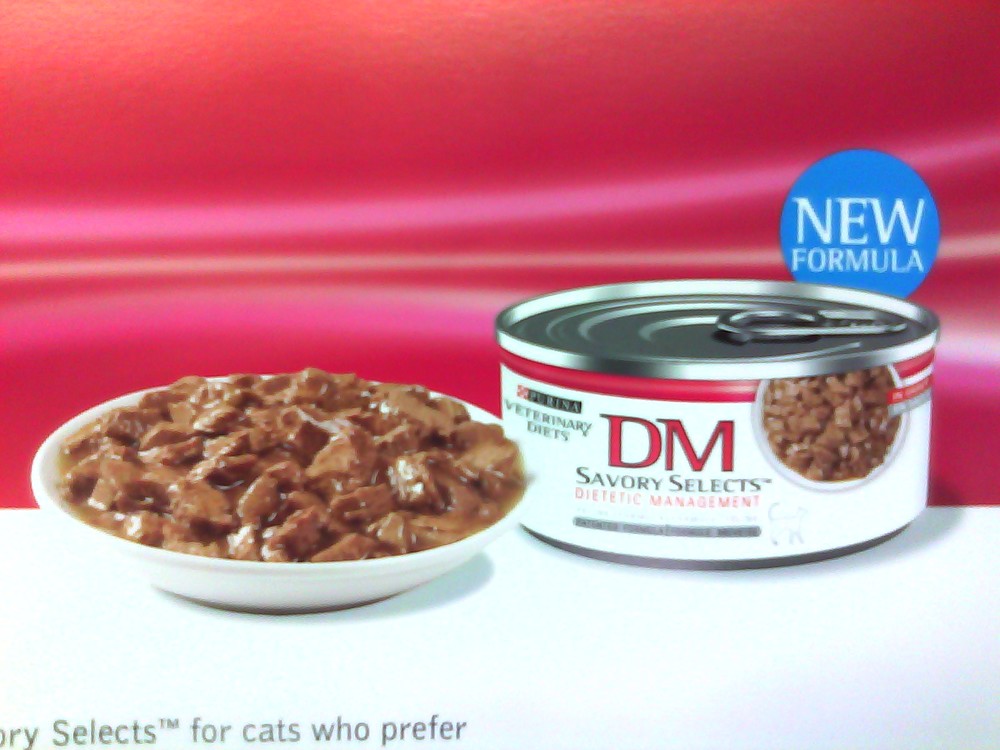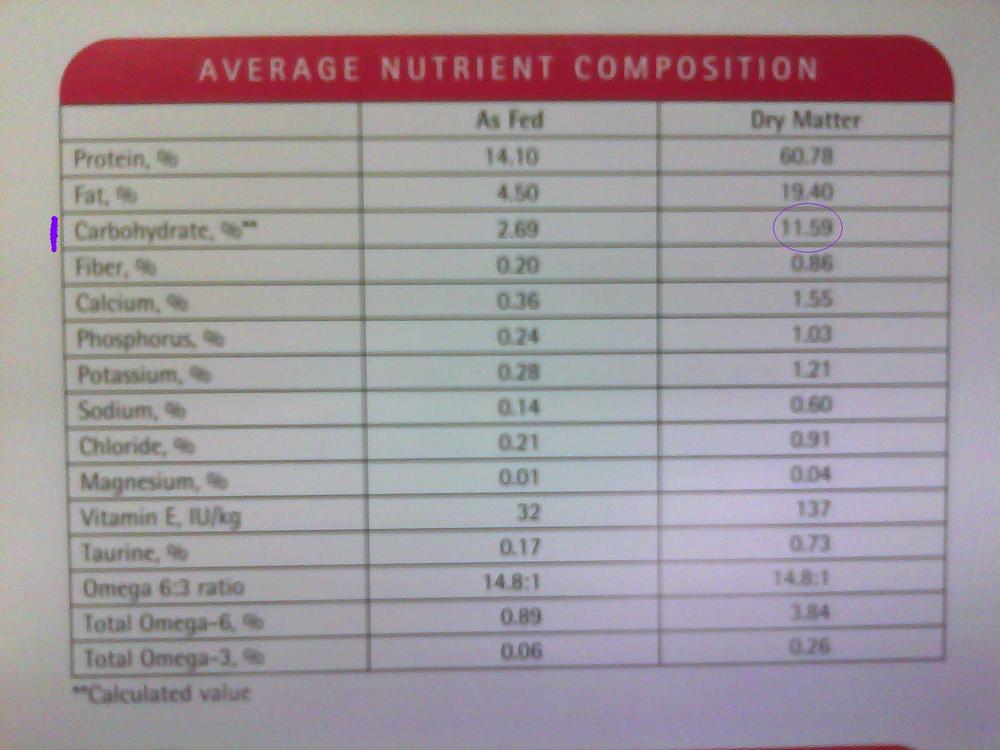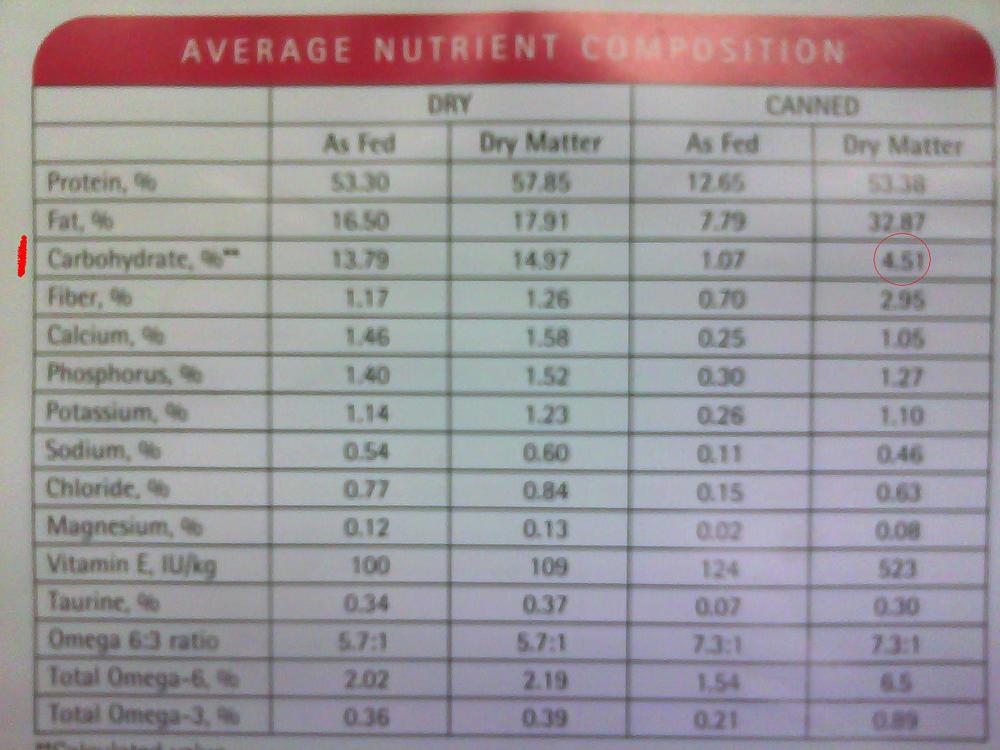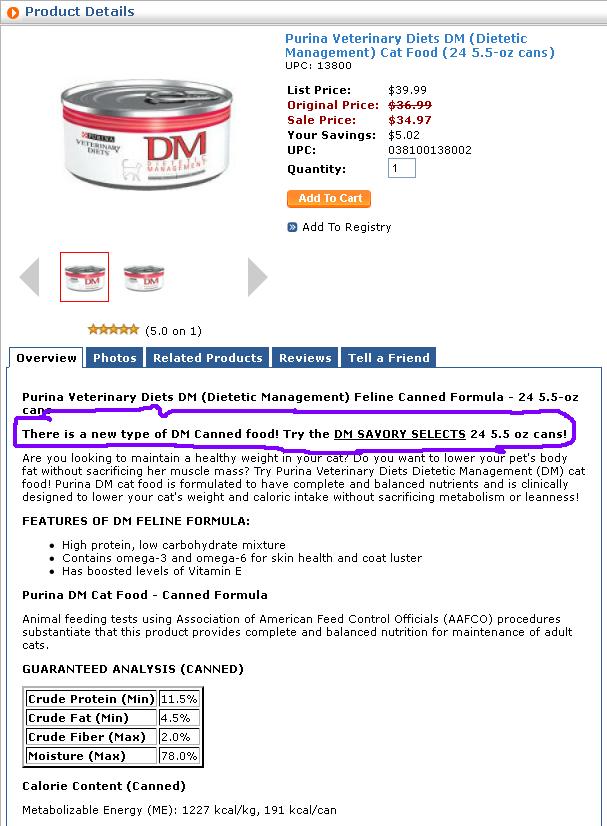DM is Dietetic Management Feline Formula from Purina Veterinary Diets. We refer to canned DM as the Diabetic Management diet for cats -- it is a critical part of our management of this disease. For more information on diabetes, please refer to this article on VeterinaryPartner.com.
How different therapeutic diets can help manage diabetic patients was one of the reminder to us that "cats are not small dogs" when it comes to disease process and treatment. Years ago, veterinarians recommended high fiber diets for diabetic cats, as we do for dogs. High fiber diets usually mean high carbohydrate. We since learned that, unlike dogs, diabetic cats do better on a low carbohydrate high protein diet. Since dry food requires some sort of flour (be it corn, rice, soy, barley, wheat, etc.) to make it crunchy and to form the kibble, it tends to be higher in carbohydrate. So even though there is a dry DM formula, the canned DM is ideal --- until recently when Purina introduced the new DM Savory Selects "for cats who prefer meaty chunks topped with gravy."
What's wrong with introducing a new formula to add variety to a diabetic cat's diet? The chunky Savory Selects does look more appetizing with the juicy gravy:
 DM Savory Selects Dietetic Management Have you ever made or watched someone make gravy from scratch? Flour or cornstarch is usually added to thicken the sauce. In DM Savory Selects, cornstarch is added to make that gravy --- and, subsequently, more than doubles the carbohydrate amount compared to the original canned DM formula.
DM Savory Selects Dietetic Management Have you ever made or watched someone make gravy from scratch? Flour or cornstarch is usually added to thicken the sauce. In DM Savory Selects, cornstarch is added to make that gravy --- and, subsequently, more than doubles the carbohydrate amount compared to the original canned DM formula.


11.59% carbohydrate (on a dry matter basis) is not that bad but you can find similarly low carbohydrate diets in certain over-the-counter canned food. Some are even lower in carbohydrate than the DM Savory Selects.
We have seen the effectiveness of the canned feline DM diet. The diabetic cats in our care that went into remission (becomes non-diabetic) have all had DM as part of their treatment. The cats that did not seem to respond to insulin eventually did after his family managed to convince him to eat canned DM. We have diabetic cats that are doing well on the canned low carbohydrate over-the-counter food in the above linked chart --- but years later, they are not in remission (and unlikely to do so). So some of the diets in the chart are alternatives for cats that will not eat canned DM (the original formula) but they cannot compare to DM.
Which is why we could not understand why Purina would make a different formula with a different nutrient profile but kept the same name. It's fine to come up with a more appetizing formula but if it has a different nutrient profile --- twice the carbohydrate percentage of its original formula --- the diet should have a completely different name. Or hyphenate it to something like DM-moderate (for moderate carbohydrate). Calling it DM Savory Selects is not differentiating it enough; it sounds too much like a new flavor.
Where's the harm?
A well regulated cat on canned DM can become unregulated if fed a higher carbohydrate diet. A previously diabetic cat that is now in remission, thanks to canned DM and his family's diligence, can come out of remission (becomes diabetic and needing insulin injections again) if his family unknowingly feeds him a higher carbohydrate diet.
And in this age of online pharmacies, that can easily happen:

DM Savory Selects may be fine for cats who will not eat canned DM. DM Savory Selects may be a good choice to transition cats onto canned DM. But it should be made clear that
DM Savory Selects is not canned DM.
We have relayed our concerns to our Purina representative so, hopefully, something will be done about this -- be it a change in labeling to differentiate the two formulas and/or Purina telling veterinarians about this so we can all write on our written prescriptions "NOT DM Savory Selects" when we want our patients to have the original canned DM formula.
Until then, please pass this information along to your veterinarians or families with diabetic cats -- especially cats who are currently on canned DM or other low carbohydrate canned diets.
Purina Feline DM is a diet that is deserving of the term therapeutic or prescription diet. It plays an important role in the management of diabetic cats. It would be a shame if any lack of success with DM Savory Selects mars the reputation of the original DM or worse, makes people doubt that diet does make a difference in the life of a diabetic cat.
